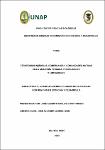| dc.contributor.advisor | Álvarez Alonso, José | |
| dc.contributor.author | Chirif Tirado, José Alberto Carlos | |
| dc.date.accessioned | 2023-11-29T15:07:44Z | |
| dc.date.available | 2023-11-29T15:07:44Z | |
| dc.date.issued | 2023 | |
| dc.identifier.other | 305.8 C61 2023 | |
| dc.identifier.uri | https://hdl.handle.net/20.500.12737/9545 | |
| dc.description.abstract | Amazonian indigenous peoples in Peru are not well known. The prejudiced approach of Peruvian society prevents a thorough comprehension of these societies and denies their contributions to different domains of knowledge and their adaptation strategies to the amazon environment. This evidently has historical reasons. This investigation contributes to a better understanding of these societies, their conceptions regarding territory and their governance systems, and above all, to the explanation of the historical processes they have endured until they became native communities. Our specific goals are to explain their conceptions and traditional practices regarding territory and governance, the analysis of the historical transformations experimented by indigenous societies and the examination of new territorial and governance proposals. We have used a descriptive non-experimental methodology that tries to establish the causal relations (conceptions and state policies) and effects (result of these policies). It is an expost facto retrospective research. We start by presenting the theoretical background that guides the research. We shall study the transit between the traditional conceptions about territory nd governance through the analysis of the colonization processes, which have occurred during the last five centuries. We have gathered the information from historical and anthropological studies; our own experience of more than 50 years of professional practice; conversations with colleagues and other specialists and semistructured interviews regarding the new proposals about territory and governance, developed by some indigenous organizations. The most important findings are the profound modifications experimented by indigenous societies, as well as their exceptional capacity to adapt to change and their vitality to analyse the present moment and design alternatives that will allow them to respond to the challenges which they confront. | en_US |
| dc.description.abstract | Las sociedades indígenas amazónicas en el Perú son poco y mal conocidas. La mirada prejuiciada de la sociedad peruana impide la buena compresión de ellas, a quienes se les niegan sus aportes en los campos del conocimiento y las estrategias de adaptación al medio amazónico. Esto, evidentemente, tiene razones históricas. La presente investigación contribuye al mejor conocimiento de las sociedades indígenas, sus concepciones territoriales y sus sistemas de gobernanza, y, sobre todo, a esclarecer los procesos históricos que han atravesado hasta llegar a conformarse como comunidades nativas. Los objetivos específicos que nos hemos planteado son el conocimiento de sus concepciones y prácticas tradicionales sobre territorio y gobernanza, el análisis de las transformaciones históricas experimentadas por las sociedades indígenas y el examen de las nuevas propuestas territoriales y de gobernanza. El método empleado es descriptivo no experimental y busca establecer relaciones de causa (concepciones y políticas estatales) efecto (resultado de estas políticas). Es una investigación expost facto retrospectiva. Partimos de un marco conceptual que guíe la investigación. El tránsito de las concepciones tradicionales sobre territorio y gobernanza será estudiado mediante el análisis de los procesos de colonización realizados a lo largo de cinco siglos. La información proviene de lecturas especializadas, tanto de textos históricos, como antropológicos; de nuestra propia experiencia a lo largo de más de 50 años de vida profesional; de consultas a colegas y otros especialistas; y de entrevistas semiestructuradas para el abordaje de las nuevas propuestas sobre territorio y gobernanza, desarrolladas por algunas organizaciones indígenas. Los hallazgos más importantes son las profundas modificaciones experimentadas por las sociedades indígenas, su excepcional capacidad de adaptación a los cambios y su vitalidad para analizar el momento actual y plantear alternativas que les permitan responder a los retos del presente. | es_PE |
| dc.format | application/pdf | es_PE |
| dc.language.iso | spa | es_PE |
| dc.publisher | Universidad Nacional de la Amazonía Peruana | es_PE |
| dc.rights | info:eu-repo/semantics/openAccess | * |
| dc.rights.uri | https://creativecommons.org/licenses/by/4.0/ | * |
| dc.subject | Pueblos indígenas | es_PE |
| dc.subject | Comunidades rurales | es_PE |
| dc.subject | Gobernabilidad | es_PE |
| dc.subject | Territorio | es_PE |
| dc.title | Territorios indígenas, gobernanza y comunidades nativas en la Amazonía peruana: posibilidades y limitaciones | es_PE |
| dc.type | info:eu-repo/semantics/masterThesis | es_PE |
| thesis.degree.discipline | Maestría en Ciencias con Mención en Ecología y Desarrollo | es_PE |
| thesis.degree.grantor | Universidad Nacional de la Amazonía Peruana. Escuela de Postgrado | es_PE |
| thesis.degree.name | Maestro(a) en Ciencias con Mención en Ecología y Desarrollo | es_PE |
| dc.subject.ocde | https://purl.org/pe-repo/ocde/ford#5.04.04 | es_PE |
| renati.author.dni | 05342330 | |
| renati.advisor.orcid | https://orcid.org/0000-0002-5124-6858 | |
| renati.advisor.dni | 41239612 | |
| renati.type | https://purl.org/pe-repo/renati/type#tesis | es_PE |
| renati.discipline | 521177 | es_PE |
| renati.level | https://purl.org/pe-repo/renati/level#maestro | es_PE |
| renati.juror | Pezo Díaz, Roberto | |
| renati.juror | Campos Baca, Luis Exequiel | |
| renati.juror | Rivas Ruiz, Roxani | |
| dc.publisher.country | PE | es_PE |





